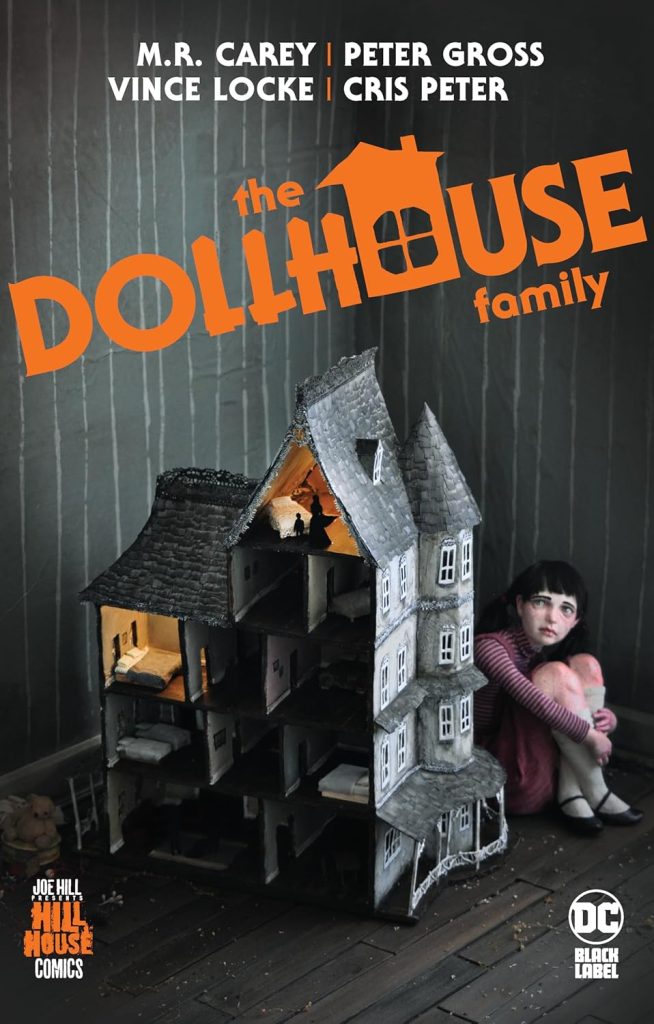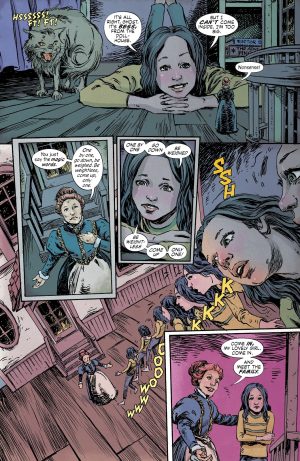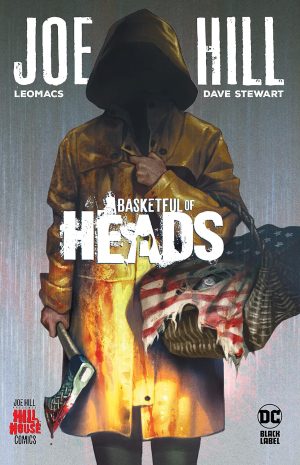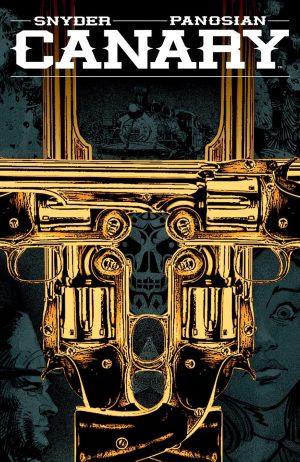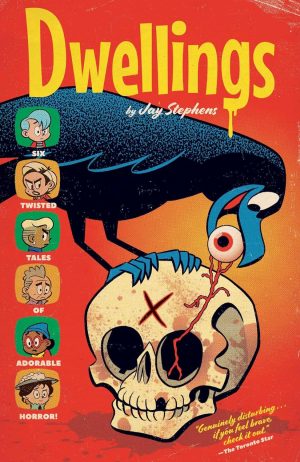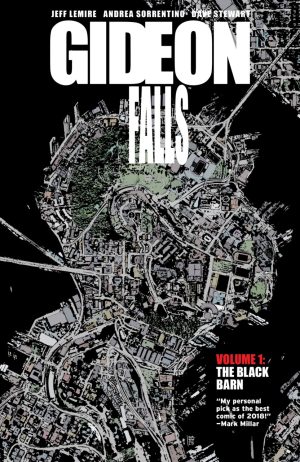Review by Karl Verhoven
In 1979 Alice Dealey inherits an ornately detailed doll house from an eccentric distant relative. “May it gladden the heart of another child as it did mine”, reads the note accompanying the bequest.
M.R. Carey establishes the situation alluringly well over the opening pages. Alice’s parents have a troubled marriage, with father Pete bullying, violent and seemingly workshy. The doll house is a refuge for Alice, who constructs elaborate stories around the people within, and after a while learns she can shrink and join those people – her name no coincidence – and when she’s with them they live and breathe. The parallel 19th century experiences of a cartographer lost in a cave system seem unconnected, and that’s a mystery perpetuated.
The Dollhouse is the sort of well crafted project Carey used to produce for Vertigo, when he was credited as Mike, presenting viable characters experiencing horrific events. An additional smart touch apparent here is evoking a feeling of this somehow being an adaptation of a classic horror story. There are familiar staging points, such as the appealing offer with appalling consequences. That’s superbly plotted, and underplayed as Carey sees no reason to explain how it is the doll house became populated for some while. He also builds Alice’s trauma until it only points in one direction.
Peter Gross breaks down the story for Vince Locke to draw, and they realise the most effective visual horror isn’t explicit, so the naturalistic art avoids gratuitous violence. Both the distant and more recent past are efficiently portrayed, but the art never draws attention at the cost of preventing the pages turning.
Those pages will turn fast as unpredictability is a big selling point for a compelling mystery with some shocking chapter endings. Alice is followed as she grows older and becomes an adult with a child of her own, all the while counterpointed by the parallel events in 19th century Ireland, which are equally tragic. The way the two narratives gradually come together is as masterful as the manner in which Alice becomes more and more isolated, knowing a truth she can never reveal, and even smarter still is the way Carey ties the present and past into something bigger. This is a dark and disturbing multi-generational fable making for magnificent horror.
